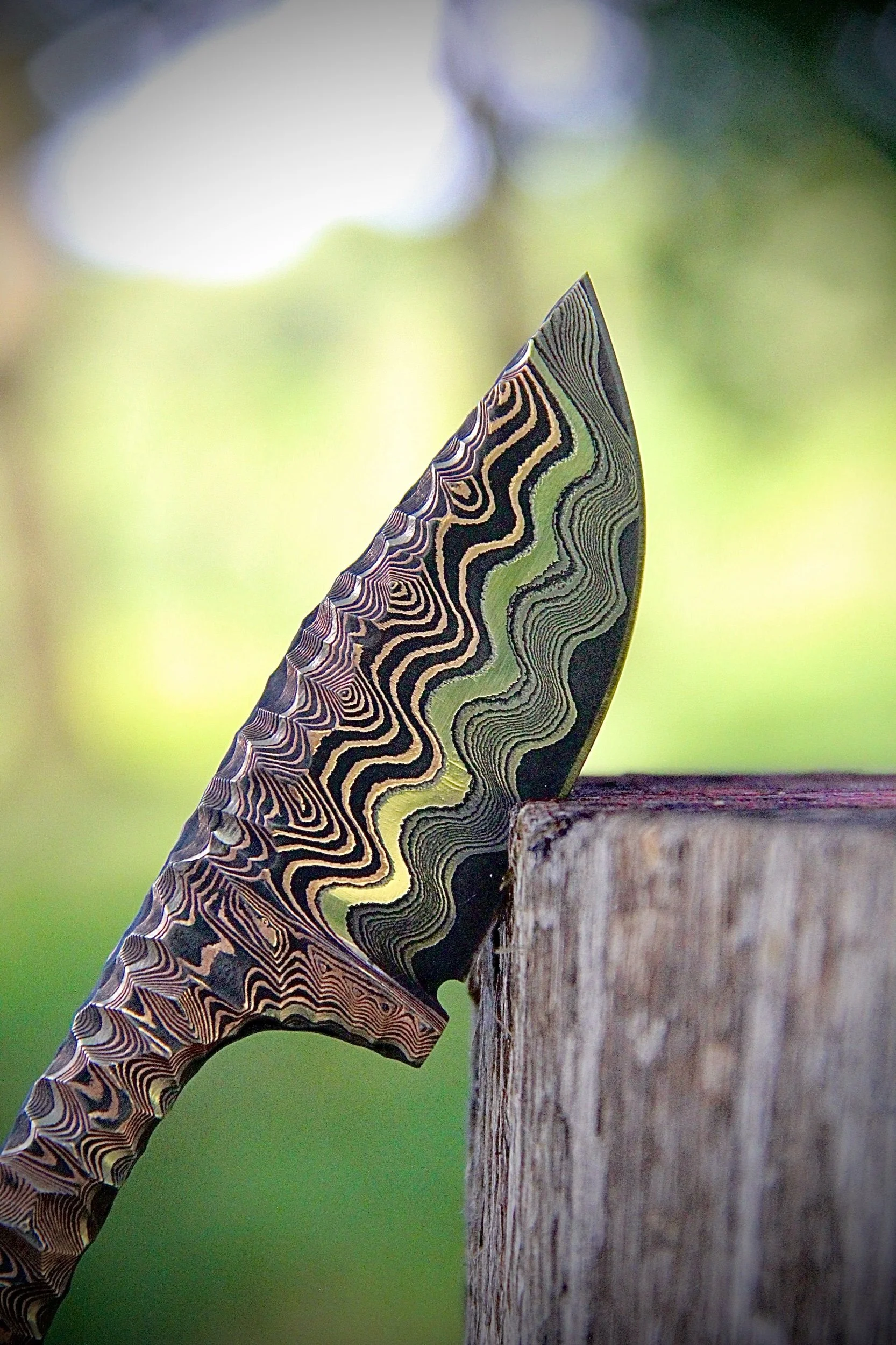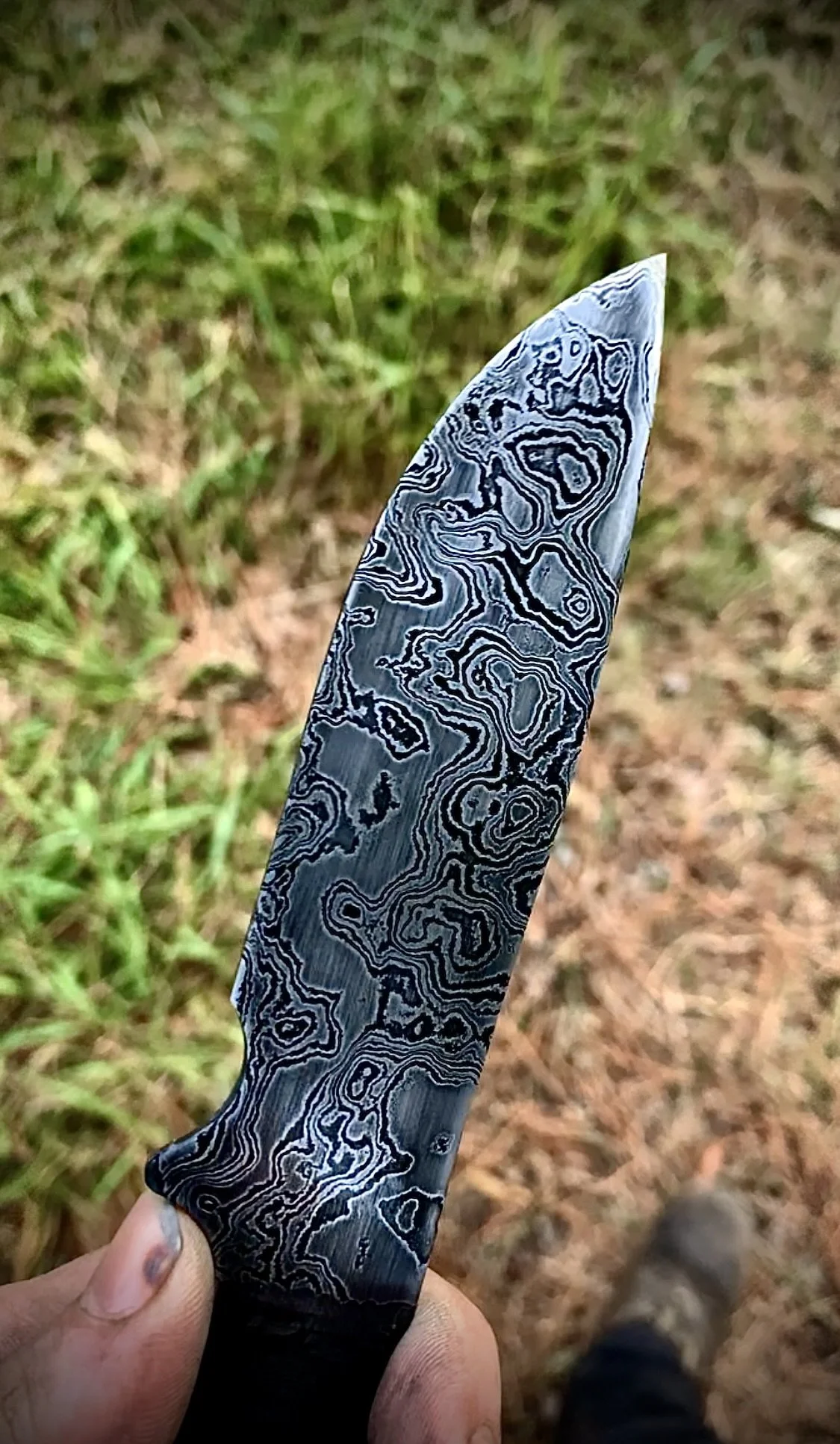Guide to Picking the Right Blade Steel: High Carbon Steel vs. Damascus Steel
When choosing the steel for your knife, the material you select will impact the knife’s performance, durability, and aesthetics. Two popular options for knife enthusiasts are High Carbon Steel and Damascus Steel. This guide will help you understand the unique properties of each type of steel so you can make an informed decision based on your specific needs and preferences.
1. High Carbon Steel
High carbon steel is a traditional favorite in the world of knife-making due to its strength and excellent edge retention. As the name suggests, this steel has a high carbon content, which enhances its hardness and durability.
Key Features:
• Edge Retention: High carbon steel is known for its superior edge retention. Once sharpened, it can maintain a razor-sharp edge for longer than many other types of steel, making it an ideal choice for those who need precision in their cutting tasks.
• Hardness: The high carbon content gives the steel excellent hardness, meaning the blade will resist bending or deformation, even under heavy use.
• Ease of Sharpening: While hard, high carbon steel is relatively easy to sharpen when compared to stainless steel varieties. It can achieve an incredibly fine, sharp edge with the right tools.
• Affordability: High carbon steel is often more affordable than more complex steel types, like Damascus, making it accessible for those who want high performance without the higher price tag.
Potential Drawbacks:
• Rust and Corrosion: High carbon steel is prone to rust if not properly cared for. Regular maintenance, including drying the blade after use and applying oil or wax, is essential to keep it from developing corrosion.
• Brittleness: Although hard, high carbon steel can be somewhat brittle, particularly in very thin blades, meaning it could chip or crack if abused.
Best For:
• Everyday Carry (EDC) knives
• Outdoor and survival knives
• Cooking knives, particularly for those who prioritize a sharp edge over corrosion resistance (with proper care)
2. Damascus Steel
Damascus steel is prized for its striking, wavy patterns and has a long history dating back to ancient sword-making traditions. Modern Damascus steel is usually made by folding and forging together two or more different types of steel, creating a blade that blends the qualities of multiple materials.
Key Features:
• Aesthetics: The most iconic feature of Damascus steel is its stunning, unique patterns that arise from the folding and forging process. No two blades are exactly alike, making each one a work of art.
• Strength and Toughness: The layering of different types of steel in Damascus gives it a balance between hardness and toughness. This makes it durable for both cutting and impact tasks, offering a resilient blade that performs well in a variety of conditions.
• Edge Retention and Sharpness: Like high carbon steel, Damascus steel can hold a sharp edge for extended periods. The combination of steels in its construction often allows it to balance sharpness and durability.
• Corrosion Resistance: Depending on the steel types used in the layering, Damascus steel can offer better corrosion resistance than high carbon steel alone, although not as much as stainless steel. This makes it more suitable for humid environments, though some care is still needed.
Potential Drawbacks:
• Price: Damascus steel tends to be more expensive than high carbon steel due to the complex forging process and the artistry involved in its production.
• Maintenance: While more resistant to rust than plain high carbon steel, Damascus steel still requires proper maintenance. The blade should be cleaned, dried, and occasionally oiled to keep it in good condition.
• Variable Performance: The quality of Damascus steel can vary depending on the skill of the maker and the steels used. Not all Damascus blades are created equal, so it’s important to buy from reputable sources.
Best For:
• Collectors and enthusiasts who appreciate the aesthetic beauty and craftsmanship of their knives
• Outdoor knives where a balance of strength and sharpness is important
• Custom and decorative knives, as the pattern and artistry make them stand out
• Special edition blades and those who want a knife that blends functional and artistic qualities
Which Should You Choose?
• Go for High Carbon Steel if:
• You need a highly functional, durable blade for daily use or outdoor activities.
• Edge retention and ease of sharpening are your top priorities.
• You don’t mind putting in a little extra care to prevent rust and keep the blade in top condition.
• Choose Damascus Steel if:
• You want a knife that’s as much a piece of art as it is a tool.
• You’re willing to invest in a premium knife with stunning aesthetics and solid performance.
• You want a knife with a good balance of toughness, sharpness, and moderate corrosion resistance.
• You appreciate the history and craftsmanship that goes into forging a Damascus blade.
Both High Carbon Steel and Damascus Steel offer excellent performance for a wide range of knives, but your decision ultimately depends on what you value most—whether that’s pure performance and ease of maintenance, or a blend of functionality and striking visual appeal. With either choice, you’re selecting a material with a rich history in knife-making and a reputation for quality.




